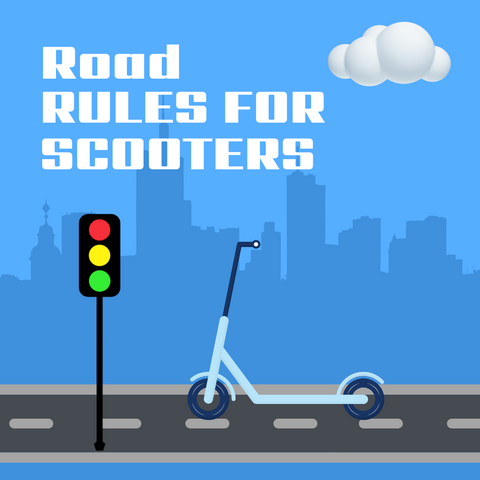Are Electric Scooters Legal on Sidewalks?
The surge in electric scooter usage has brought about numerous safety concerns, particularly for pedestrians navigating busy city sidewalks. Given their popularity, the question "Are electric scooters allowed on sidewalks?" is crucial for ensuring safety and compliance with local regulations.
The Sidewalk Conundrum
Electric scooters pose a significant risk to pedestrians when used on sidewalks. Numerous reports highlight the dangers, such as scooters being left as obstacles and collisions resulting in injuries. As a result, many cities in the U.S. and worldwide have banned scooters from sidewalks to protect pedestrians.

Addressing Safety Concerns
Elderly and disabled pedestrians are particularly at risk from scooters on sidewalks. Companies like Lime and Spin are developing solutions to detect when scooters are on sidewalks and share this data with local governments. These technologies aim to prevent sidewalk misuse, but they are currently in the early testing phase and can be costly.
Riding with Caution
Riders must adhere to local restrictions, watch out for pedestrians, and ride defensively. While some riders believe sidewalks are safer than roads, the risk of injury remains significant. On roads, scooters compete with much heavier vehicles, making caution essential.
Promoting Safe Riding Practices
Many scooter accidents are due to a lack of experience and failure to wear helmets. Riders who own scooters tend to ride more safely and wear helmets compared to those who rent. A CDC study in Austin, TX, found that one-third of all e-scooter accidents involved first-time riders. Training and understanding basic riding mistakes can significantly enhance safety.
Navigating Legal Gray Areas
In areas with little sidewalk traffic and inadequate infrastructure, riding on sidewalks may be necessary. However, riders should be aware of local laws, which can be checked through the local Department of Motor Vehicles. Regulations around electric scooters have been inconsistent and subject to change.
Adapting to Different Situations
In certain situations, riders may need to walk their scooters on the sidewalk to avoid fines. Reducing speed to a walking pace can also be a safer option when pedestrian traffic is light. Awareness and adherence to local regulations are crucial for safe riding.
Global Perspectives
Regulations vary significantly worldwide. For example, Calgary allows scooters on sidewalks, footpaths, and bike lanes but prohibits them on roads. This approach aims to keep riders safe, highlighting the need for better infrastructure for alternative transportation.
Moving Forward
Electric scooters are here to stay, and cities will continue to adapt to their presence. Riders should use their best judgment, always give pedestrians the right of way, and stay informed about local laws and regulations to ensure safety and compliance.
Frequently Asked Questions (FAQ)
1. Are electric scooters allowed on sidewalks in all states?
Regulations vary by state and local jurisdictions. It's important to check your local laws before riding on sidewalks. You can find more information on your state's Department of Transportation website or local government pages.
2. What safety equipment is required for riding an electric scooter?
Most states require helmets for riders under a certain age, and some require them for all riders. Reflective clothing and lights are also recommended. Check your local laws for specific requirements.
3. Are there penalties for riding electric scooters on sidewalks?
Yes, many cities impose fines for riding electric scooters on sidewalks where it is prohibited. Always check local regulations to avoid penalties.
4. Can I walk my electric scooter on the sidewalk?
In many areas, walking alongside your electric scooter on the sidewalk is permitted. This can be a safer option in areas with heavy pedestrian traffic.
5. Where can I find official information on electric scooter laws?
Official information can be found on state government websites, such as the Department of Transportation or local city websites. For example, California's electric scooter laws can be found on the California Department of Transportation website.


